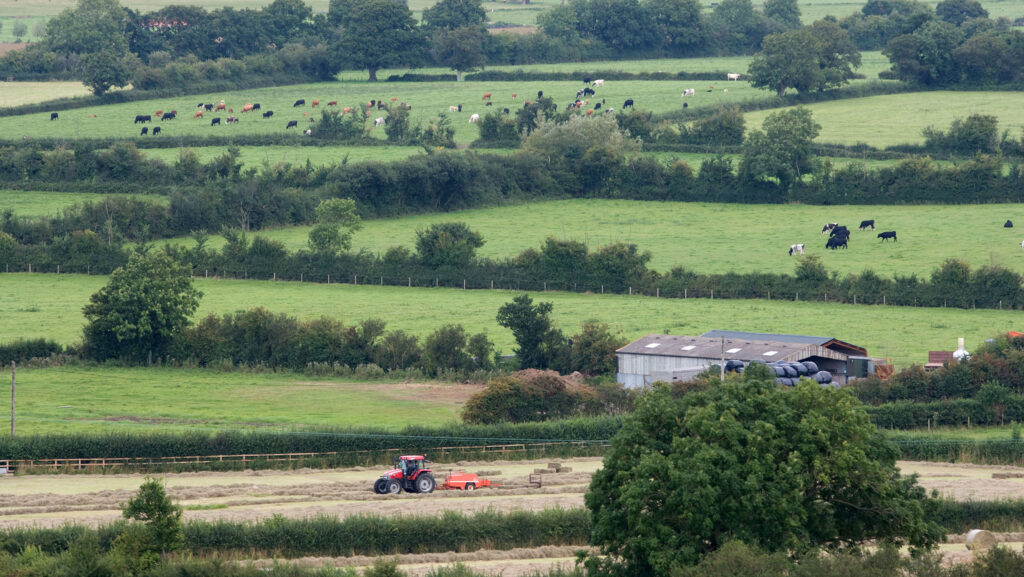This Week in Farming: Profits push, land reform and crop quality
 © Tim Scrivener
© Tim Scrivener Welcome back to This Week in Farming, your weekly round-up of the best content from Farmers Weekly over the past seven days.
First, a quick request – we want to hear from you about how 2025 has been for your farming business and how you’re feeling about the year ahead.
Complete our annual Sentiment Survey for the chance to win a £75 Amazon voucher. Results will be shared in our Christmas and new year issues.
Looking at this week’s markets (opens as PDF), beef remains a tremendous trade with prices lifting again, lamb remains fairly steady, and finished pig prices slip back further.
Meanwhile, feed wheat prices have picked up a little to £166.5/t ex-farm midweek. It’s not a huge rally, but a glimmer of optimism is always welcome.
Now on with the news…
Push for profit
The long awaited farm profitability review landed on Defra’s desk on 31 October, with Baroness Minette Batters offering up more than 50 recommendations to improve the agricultural sector.
Defra is holding off publishing the full report until later this month, but Baroness Batters has already hinted that quick wins could come from simpler planning rules, tackling labour shortages in horticulture, and tax and grant incentives.
It’s clear something needs to be done to improve profitability with half of UK farmers considering quitting the sector, according to new research from McCain Foods.
It’s not just the number of farmers which is in decline, it’s the area of farmland too.
The All Party Parliamentary Group on Science and Technology in Agriculture found that the UK lost 771,000ha of farmland over the past 30 years, contributing to a 12% decline in food self-sufficiency.
The group says a radical reset on food production is needed, a view shared by Farmers Weekly’s news editor Philip Clarke, who writes in this week’s Editor’s View that we will need to produce more from less.
Meanwhile, with just over a fortnight until the Budget, hopes of a U-turn on inheritance tax are diminishing.
The NFU is now pushing for legal amendments to the proposed reforms and urging Labour backbenchers to support them.
A lack of profitability and cashflow concerns are having real impacts on the ground, with arable farmers hit hardest by rising input costs and poor margins leading to growers delaying fertiliser purchases until the last minute.
Dairy farmers are also feeling the pinch with processors slashing farmgate milk prices again for November and December, leaving many producers receiving less than the cost of production.
Land grab
The Land Reform (Scotland) Bill, which includes stricter requirements for landowners and land management plans, passed this week to a mixed reception, with concerns from large landowners but support from the Scottish Tenant Farmers Association.
It’s been a busy news week for the tenanted sector with Reform UK confirming plans to halt the sale of Staffordshire council farms, and Baroness Rock calling for a fairer deal for tenants hit by development.
Meanwhile, in the Farmers Weekly Land section there is a flurry of farm launches from across the UK.
Emissions decisions
Deputy editor Abi Kay discovered this week that the government has quietly shelved a proposed pledge to cut methane emissions from livestock by 30% by 2030, described by industry as a “lucky escape”.
Methane-reducing feed additive Bovaer also made headlines after its manufacturers had to publicly defend the product.
This was following Danish farmers raising concerns that it may be linked to cattle illness and deaths.
There’s been some welcome news for beef producers as the EU Commission has recognised the UK as having “negligible risk” status for bovine spongiform encephalopathy (BSE), which should open the door for more British exports to the Continent.
However, the House of Commons public accounts committee has warned that Defra and the Animal and Plant Health Agency could be unprepared for any major disease outbreaks.
This could prove particularly pertinent with a fresh wave of bluetongue cases confirmed in Wales and an alarming rise in the number of avian influenza cases.
Crop quality
Wheat quality looks to have improved this year with almost half of Group 1 milling wheat meeting or beating typical specifications.
Looking ahead, cereals growers are being urged to take advantage of the good field conditions and consider a third weed spray.
The FW Arable desk have also had a look into scientific research showing that hidden traits in wheat could help farmers safeguard future yields against climate change and disease.
Meanwhile, the Machinery team have published our Ultimate Guide to buying a trailed combination drill.
Ending on a high
James Matthews, a nine-year-old farmer’s son from Essex, spent his half term climbing Ben Nevis and raised more than £1,165 for the Farming Community Network in the process.
Finally, entries are now open for the 2025 Farmers Weekly photo competition. Get your entries in by 21 November to be in with a chance of winning.
Listen to the FW Podcast
Don’t forget to tune in to the Farmers Weekly Podcast, with Johann Tasker, Louise Impey and Hugh Broom.
You’ll find it anywhere you listen to podcasts, or listen free on the FW website.

